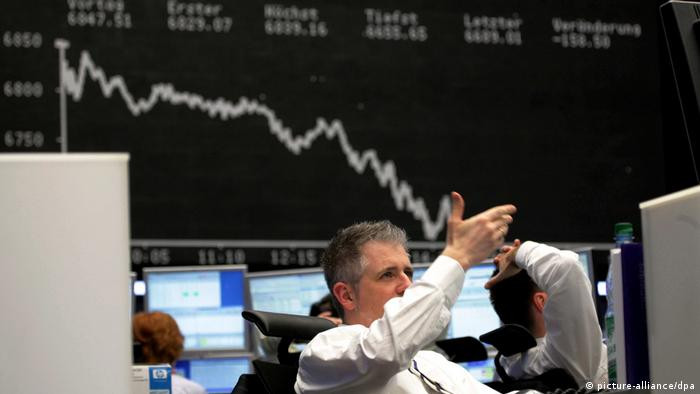On Thursday, European stock indices are showing a decline of almost 3% amid investors' concerns about the beginning of the military operation in eastern Europe.
At the time of writing, the STOXX Europe 600 index lost 2.85%, dropping to the lowest levels of spring 2021. The German DAX fell by 3.6% and also reached the March lows of last year.
Thanks to the surge in oil prices, the UK stock index FTSE 100 lost only 2.76%.

Shares of companies in the technology and tourism sectors suffered the maximum drop in the key components of the European stock market. Moreover, securities of European banks, most exposed to Russian influence, were among the leaders of the fall. Thus, shares of Raiffeisen Bank, UniCredit and Societe Generale lost from 5.6% to 11.4%.
On Thursday, Russian President Vladimir Putin launched a military operation in Ukraine.
In response, US President Joe Biden pledged that the leaders of the G7 and US allies would impose tough sanctions against Russia.
At the end of Wednesday's trading session, European stock indices also declined. Only the FTSE 100 index managed to climb by 0.05%.
At the same time, The STOXX Europe 600 index dropped by 0.28% closing at 453.86.
The German DAX index fell by 0.42% to its lowest level in 11 months, the French CAC 40 index lost 0.1%, Italy's leading stock indicator FTSE MIB declined by 0.34%, and Spain's IBEX 35 dropped by 0.63%.
The securities of European companies, which participated in the construction of Nord Stream 2, significantly declined at the end of Wednesday's session. French energy and gas company Engie fell by 0.1%, the UK-Dutch Shell dropped by 0.6%, Austrian OMV declined by 2.4%, and German Uniper plummeted by 9.3%.
Anglo-Australian mining and metallurgical corporation Rio Tinto lost 2.2%. Australian-British mining and metallurgical corporation Rio Tinto lost 2.2%. The day before the company reported a record net profit of $21.09 billion for the year. However, Rio Tinto's published results appeared to be worse than market analysts' forecasts. The company says it expects dividends to total $10.4 per share in 2022 which is twice as much as a year ago.
Thanks to strong statements over the previous quarter, French food company Danone, Dutch carmaker Stellantis and UK bank Barclays rose by 3.8%, 4.1%, and 3.1%, respectively.
The securities of Dutch company JDE Peet's B.V., which owns numerous beverage brands, soared by 14.3% on Wednesday. JDE Peet's B.V. doubled its net profit to €762 million last year as Covid-19 restrictions were lifted. In addition, the company's management announced that it was planning to achieve double-digit sales growth this year.
On Wednesday, an increasingly tense conflict between Ukraine and Russia was the main reason for the European market decline. The day before, the Ukrainian authorities reported new cyber attacks on the websites of the government and banks of the country, blaming the Kremlin, and announced the introduction of a state of emergency in the country from February 24.
In the current environment, global markets are reacting not only to the escalating conflict, but also pricing in the risks of further Western sanctions against Russia.
On Tuesday, Chancellor of Germany Olaf Scholz announced that he had stopped the certification for Nord Stream 2. On the same day, the leading US media reported that US authorities were planning to impose sanctions on the Nord Stream 2 AG pipeline.
On Wednesday morning, the final data on inflation in the Eurozone were published. The released figures coincided with preliminary estimates and turned out to be an all-time high. So, at the end of January, the annual inflation rate in 19 countries of the Eurozone rose to 5.1% from 5% in December 2021.
Energy prices jumped by 28.8%, the cost of food, alcohol, and tobacco products rose by 3.5%. At the same time, the inflation rate excluding energy products was at 2.5%.
The increase in consumer prices in January was the lowest in six months and amounted to 0.3% on a monthly basis.
 English
English 
 Русский
Русский Bahasa Indonesia
Bahasa Indonesia Bahasa Malay
Bahasa Malay ไทย
ไทย Español
Español Deutsch
Deutsch Български
Български Français
Français Tiếng Việt
Tiếng Việt 中文
中文 বাংলা
বাংলা हिन्दी
हिन्दी Čeština
Čeština Українська
Українська Română
Română

